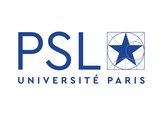Women Leaders in Sciences
- Duration: 2 hours
- Effort: 2 hours
- Pace: Self paced
- Languages: English
What you will learn
At the end of this course, you will be able to:
- Identify and explain the main sociological mechanisms behind gender biases in science.
- Give some examples of great scientific women in various fields and the challenges they met.
- Have some examples of successful policies to implement in order to fight gender biases in sciences.
Description
In this short course, our objective is to give you some keys to understand the gender biases affecting access to scientific careers. It will give you some figures and concepts in order to understand the social forces at play, some concretes examples in order to best understand how those gender inequality translates in terms of real-life experiences, and some food for thought on how to implement policies in your university to fight those biases.
This MOOC can be followed by a sensibilization event, such as a collaborative presentation, in a group or alone.
Format
This course is open access does not offer a forum or animations and does not offer a certification.
Prerequisites
No prerequisites needed.
Assessment and certification
None.
Course plan
- - Where are we about gender equality?
- Did you know about… The Matilda effects?
- Barbie engineer and the importance of a good role model.
- Equality of opportunity vs equality of choice
- - Studying in Mines Paris – PSL: Patchwork of experiences
- Charlotte Jacquemot: Science, care and career
- Ghid Karam
- - What we observe, still to this day:
The choice of more practical careers, even in sciences and research.
The decrease of women in sciences depending on the level of specialization.
The relative absence of women in position of power.
The incompatibility between careers and family life, but for women only.
The invisibilisation of women researcher, leading to a lack of role models.
- Examples of policies
Role Models, from the youngest age
Making our women leaders more visible
Active policies to reduce inequalities for those with a family or caring responsibilities.
Organizations
License
License for the course content

Attribution-NonCommercial
You are free to:
- Share — copy and redistribute the material in any medium or format
- Adapt — remix, transform, and build upon the material
Under the following terms:
- Attribution — You must give appropriate credit, provide a link to the license, and indicate if changes were made. You may do so in any reasonable manner, but not in any way that suggests the licensor endorses you or your use.
- NonCommercial — You may not use the material for commercial purposes.
License for the content created by course participants

Attribution-NonCommercial
You are free to:
- Share — copy and redistribute the material in any medium or format
- Adapt — remix, transform, and build upon the material
Under the following terms:
- Attribution — You must give appropriate credit, provide a link to the license, and indicate if changes were made. You may do so in any reasonable manner, but not in any way that suggests the licensor endorses you or your use.
- NonCommercial — You may not use the material for commercial purposes.

